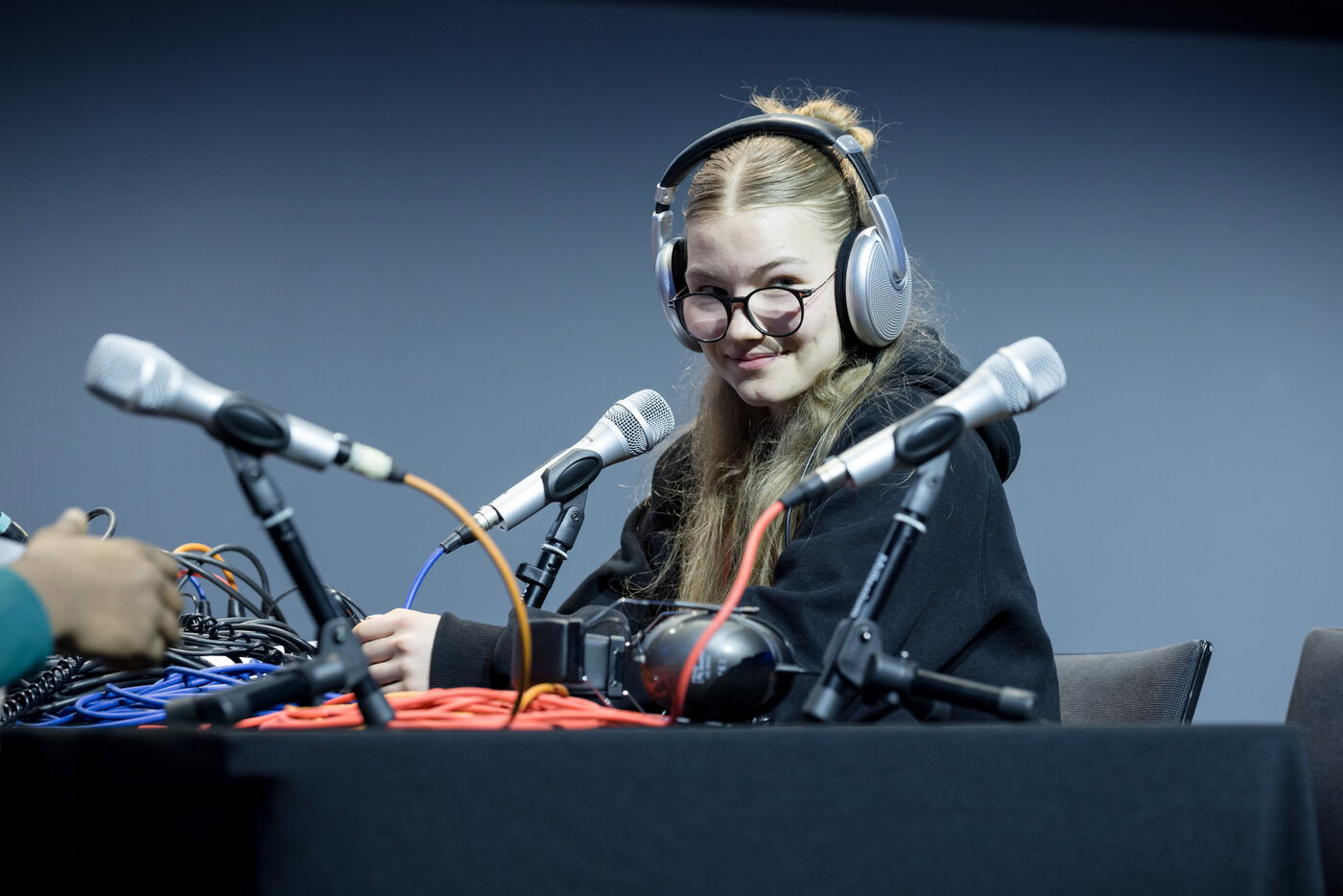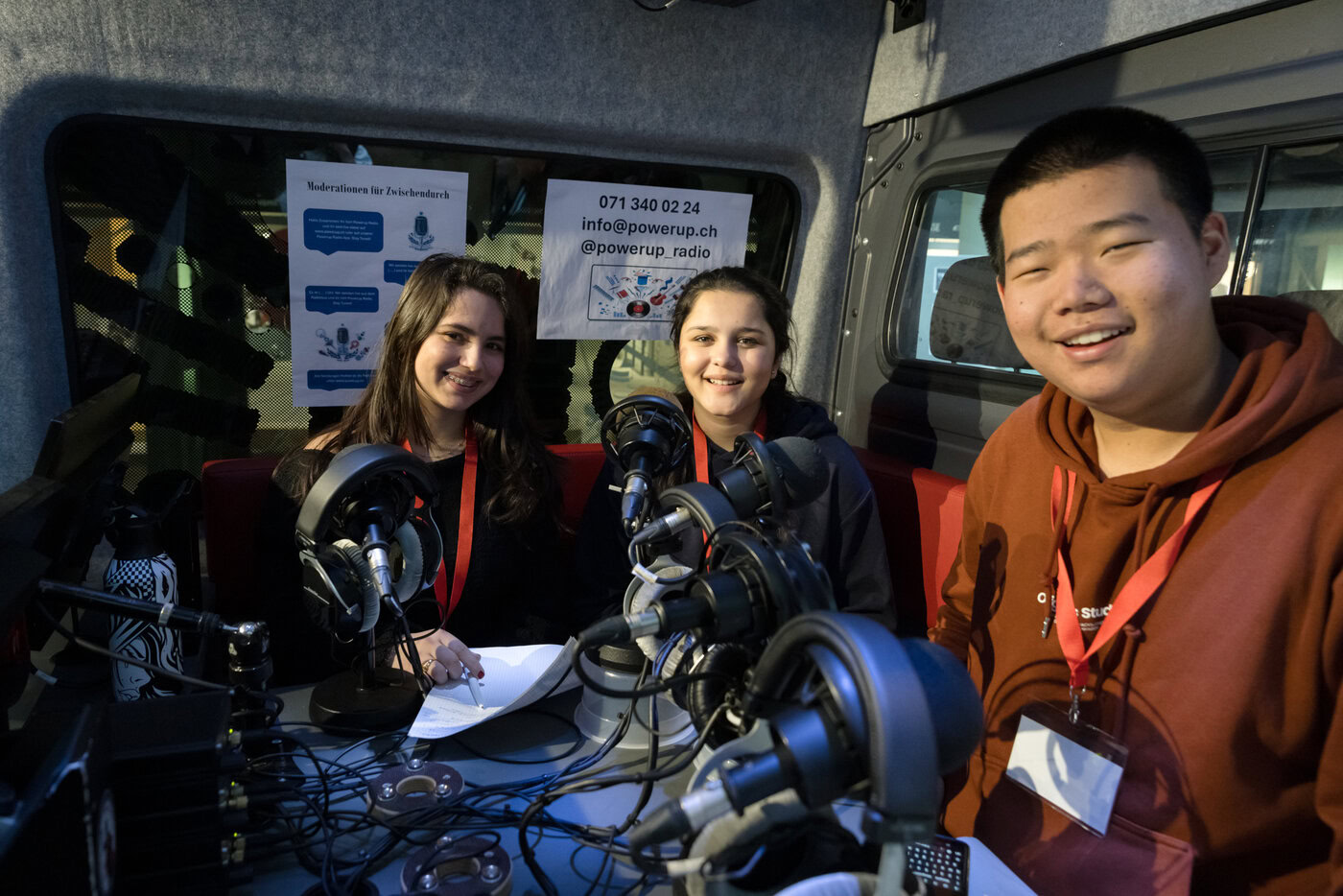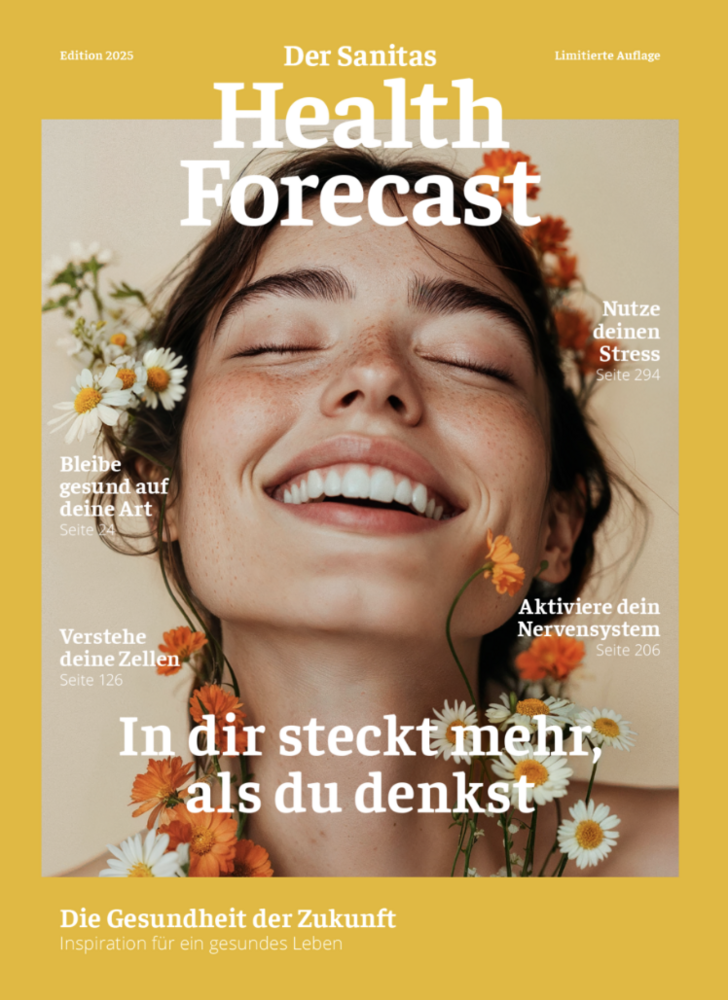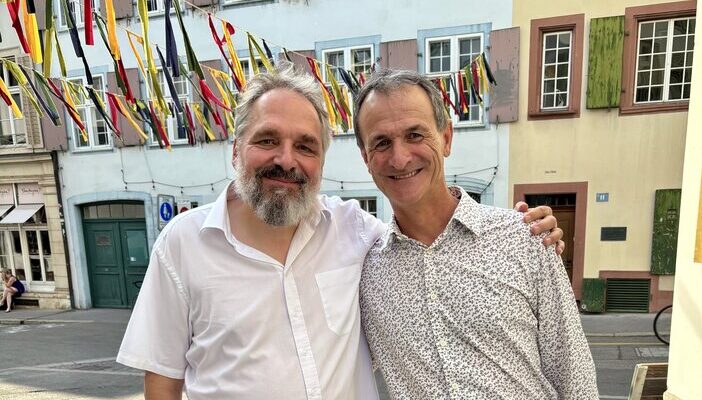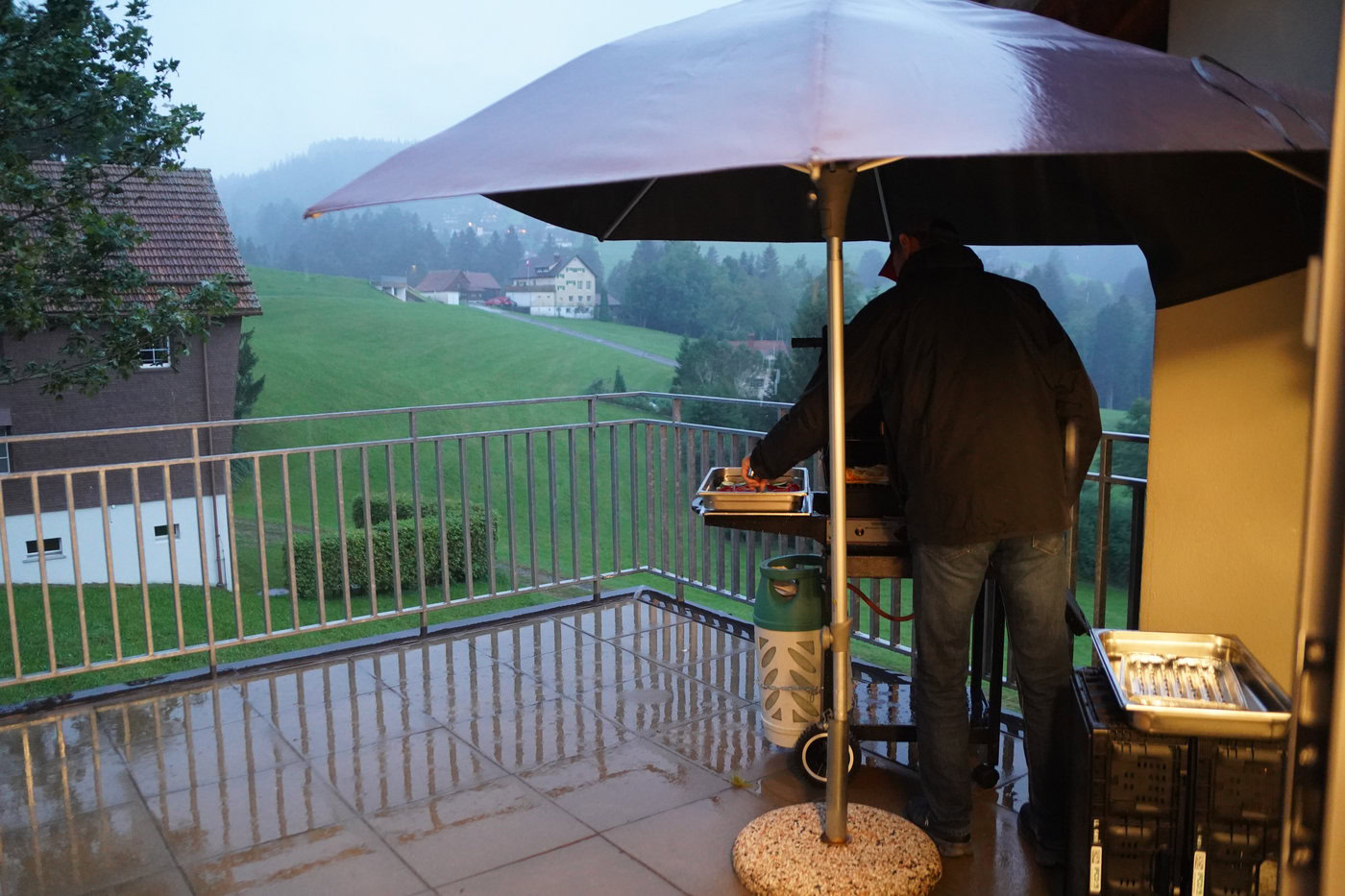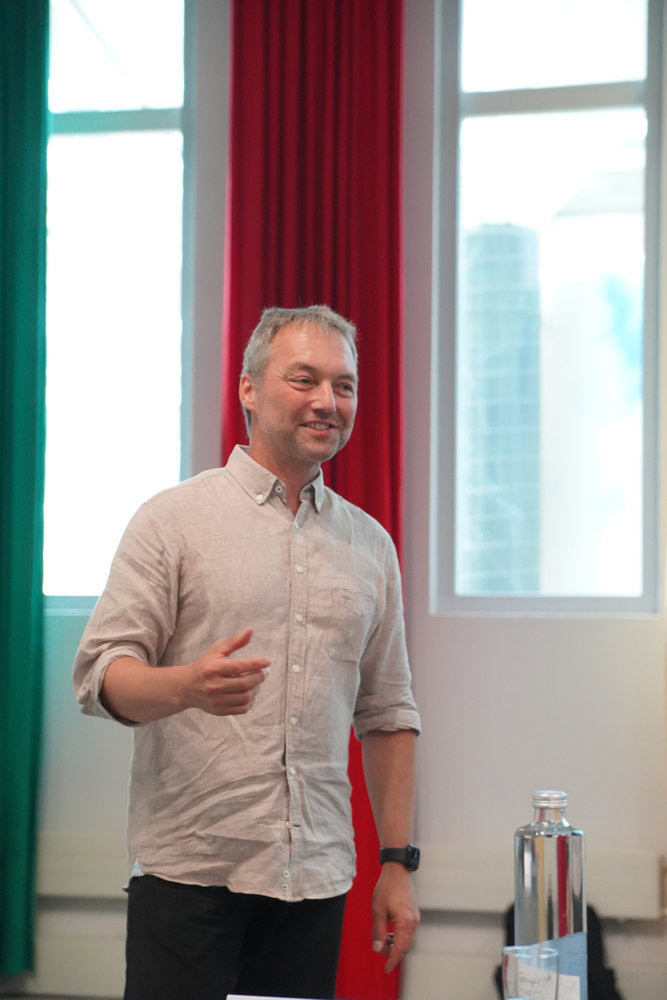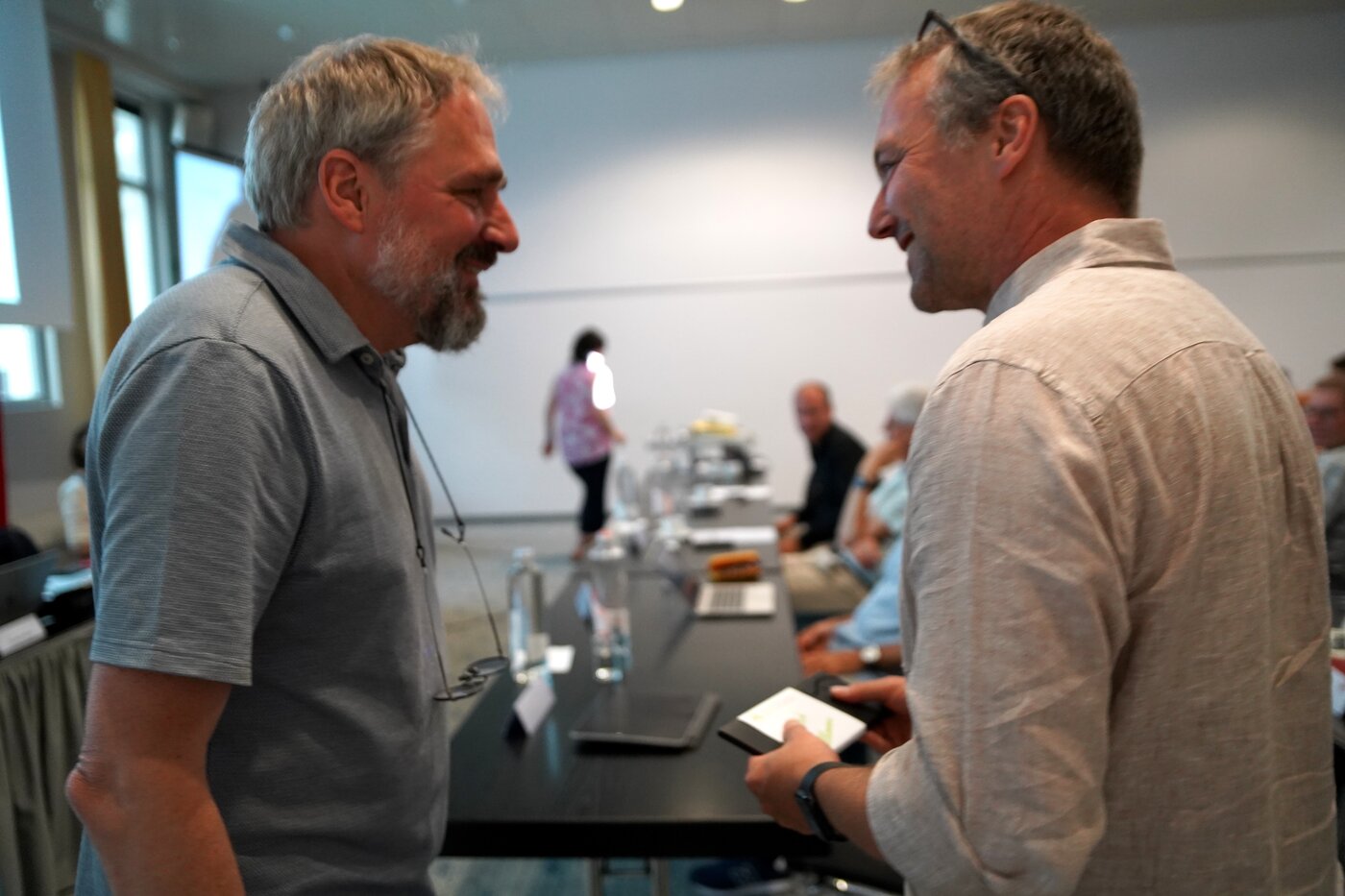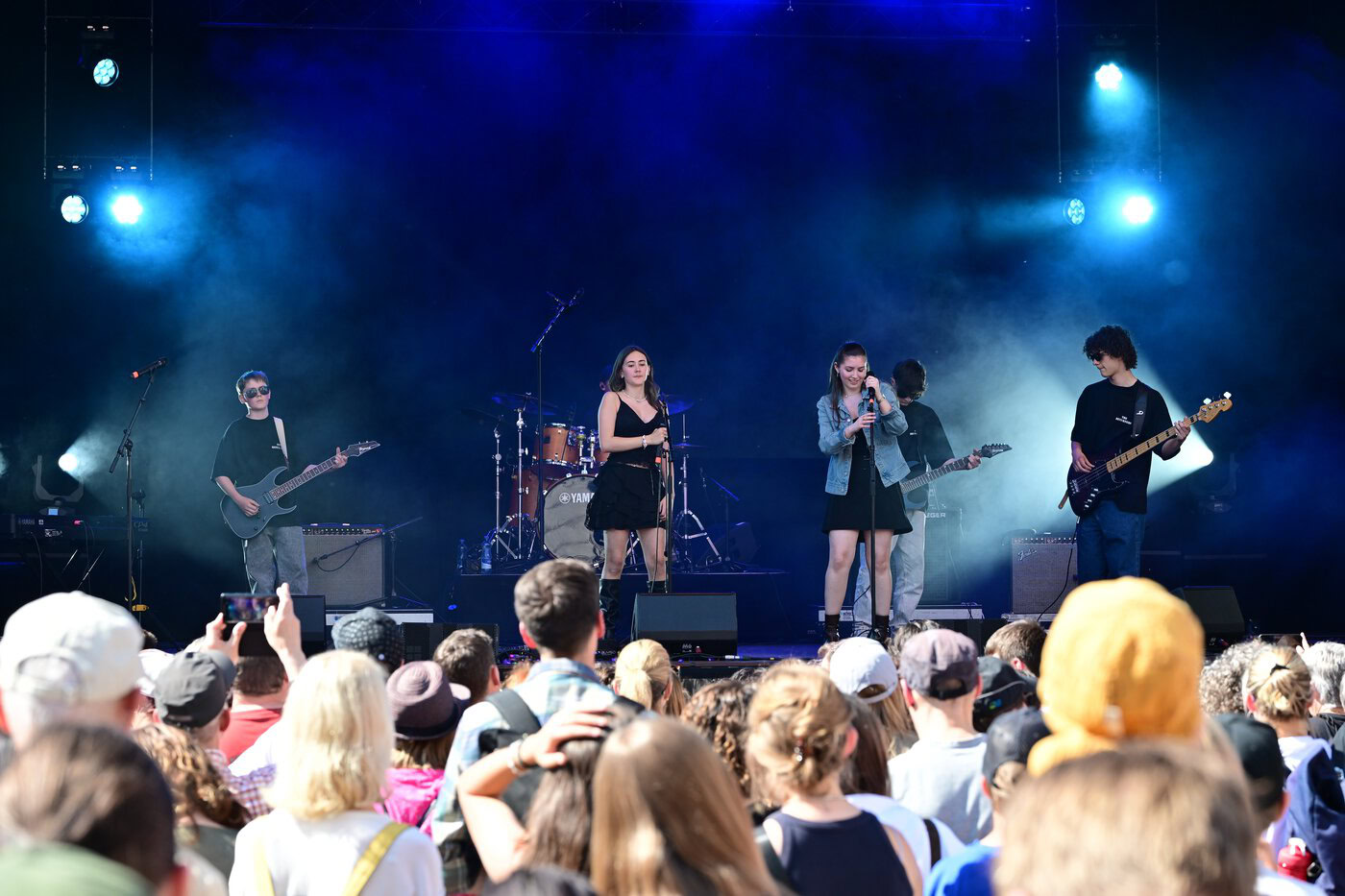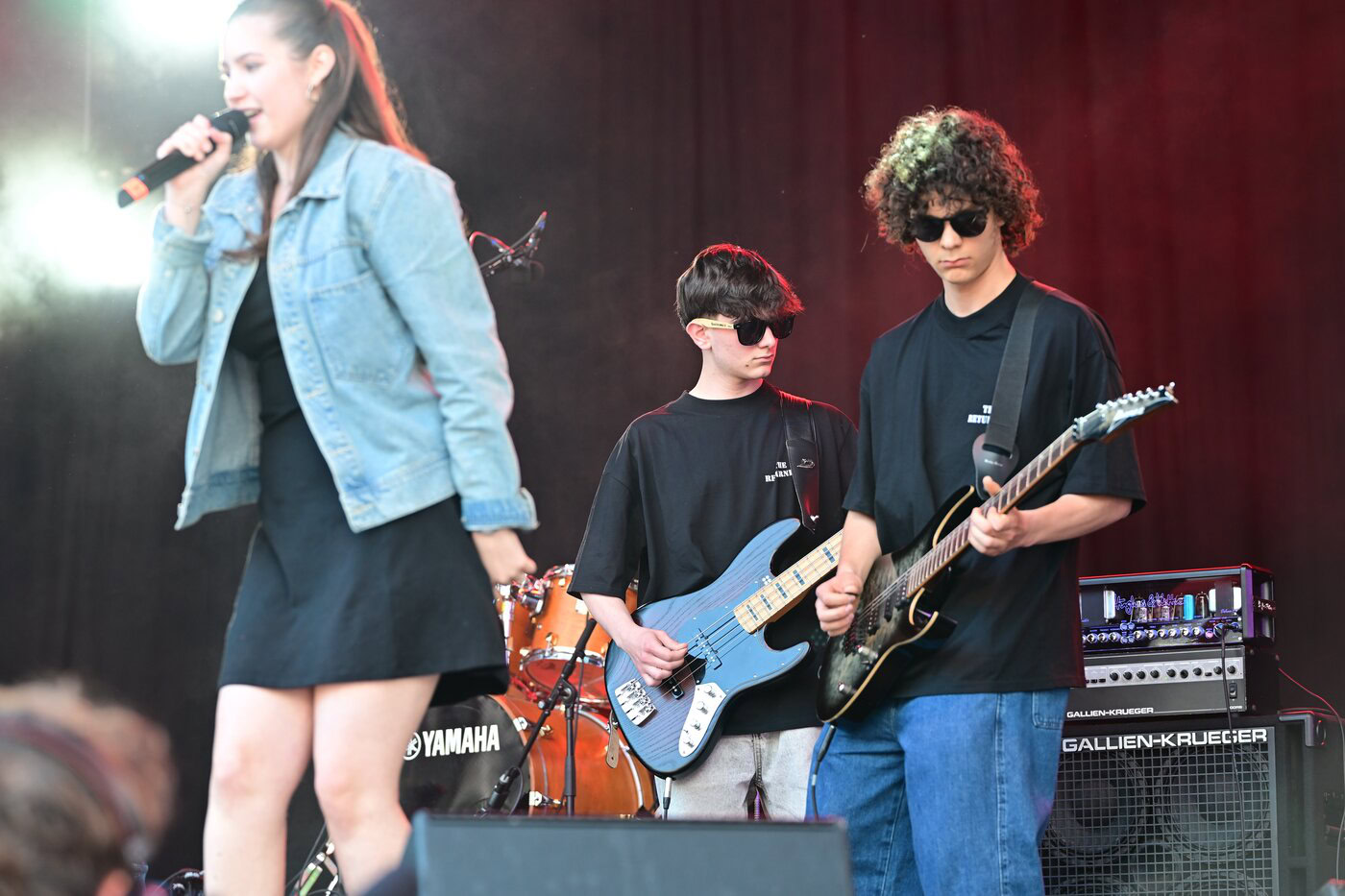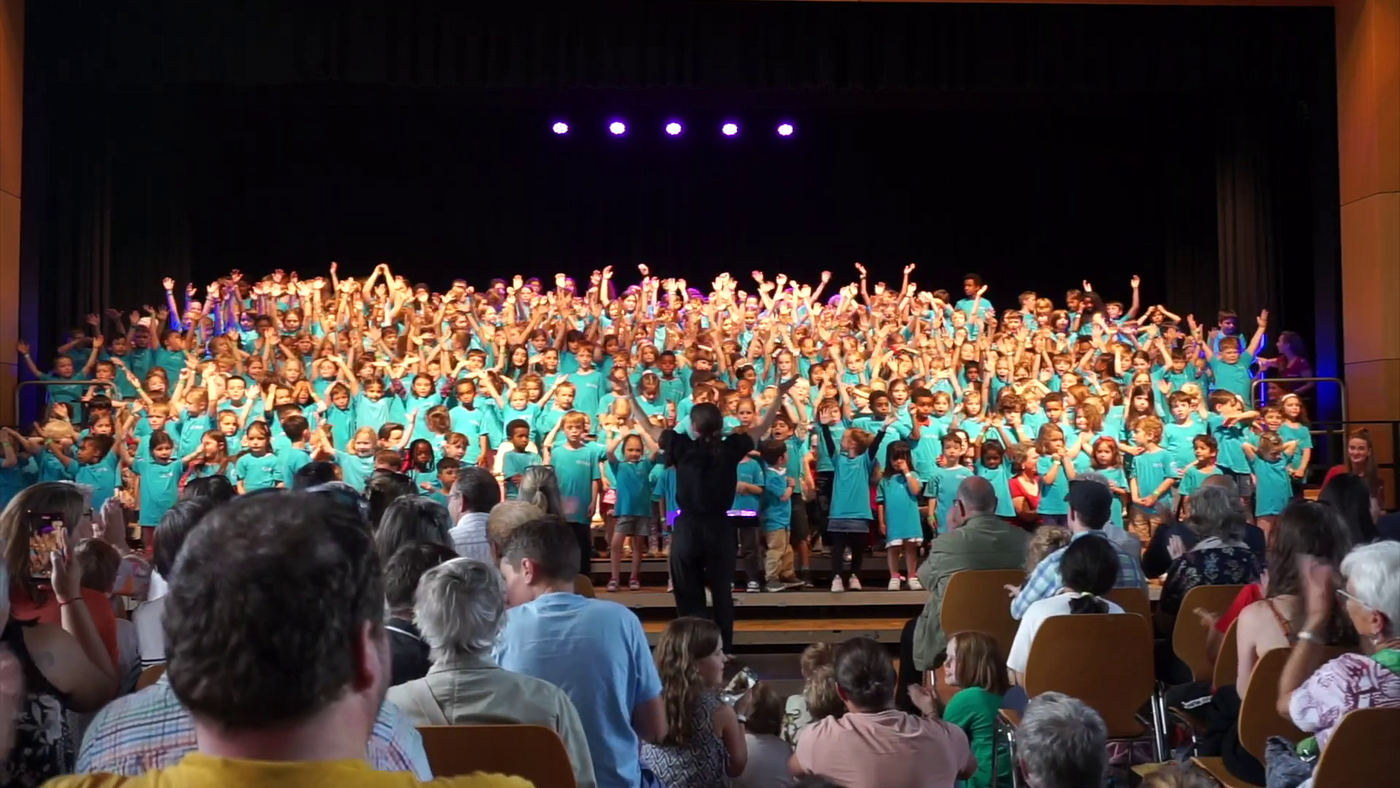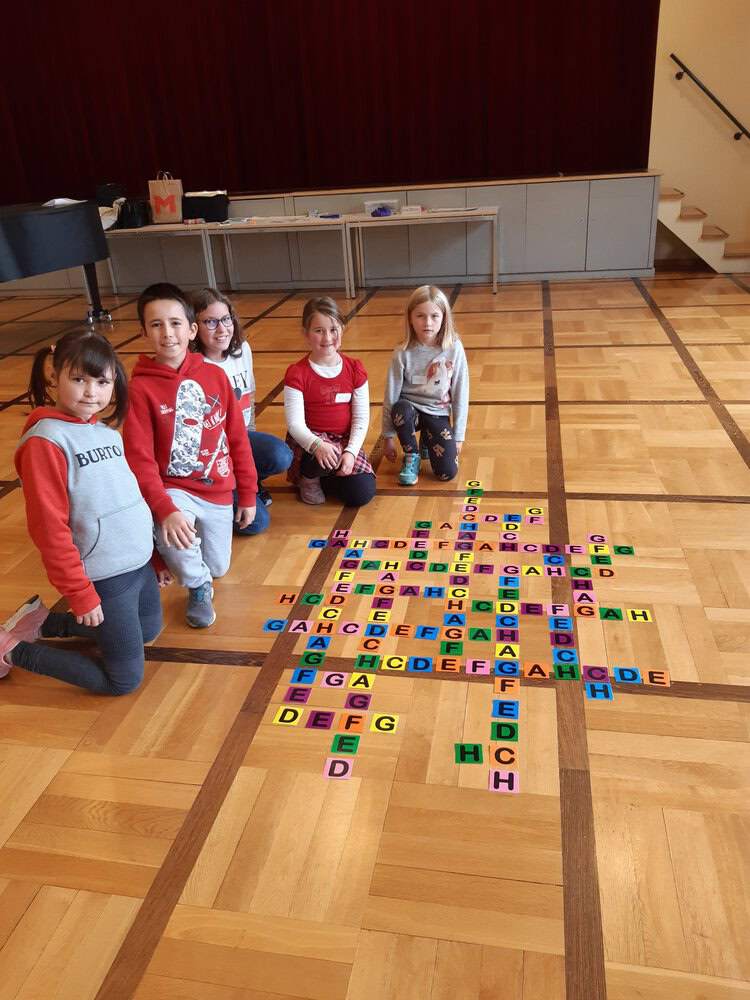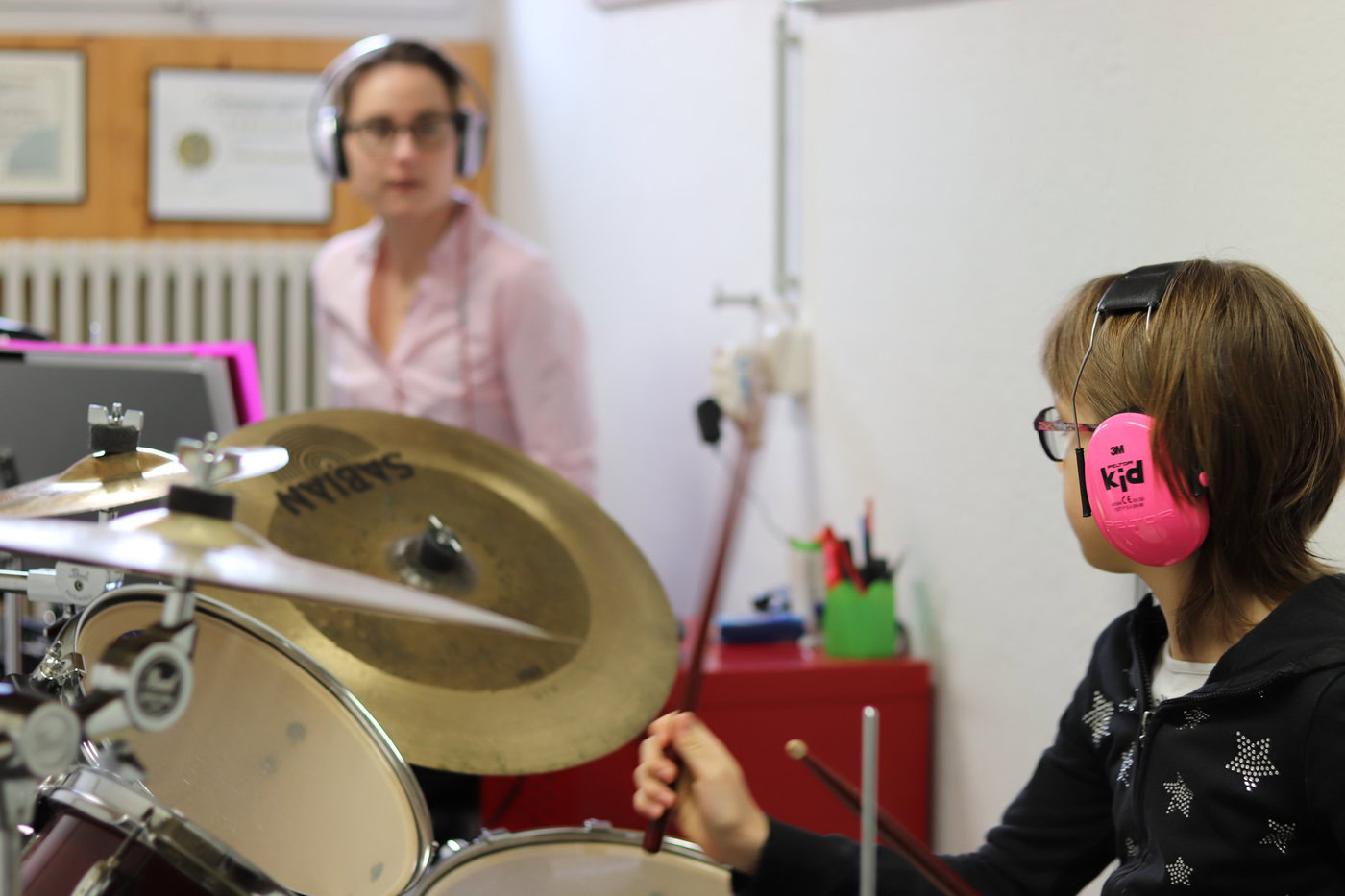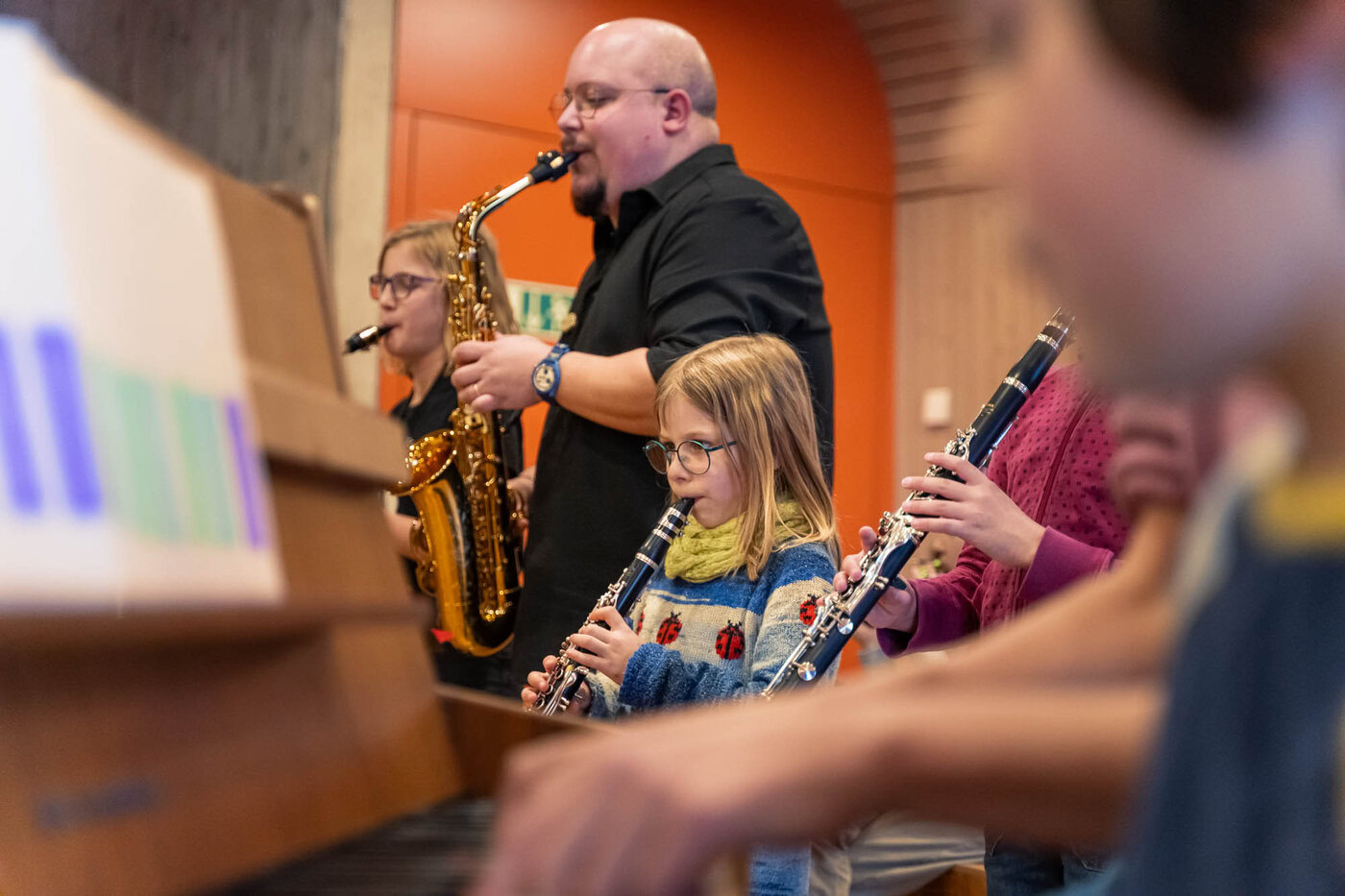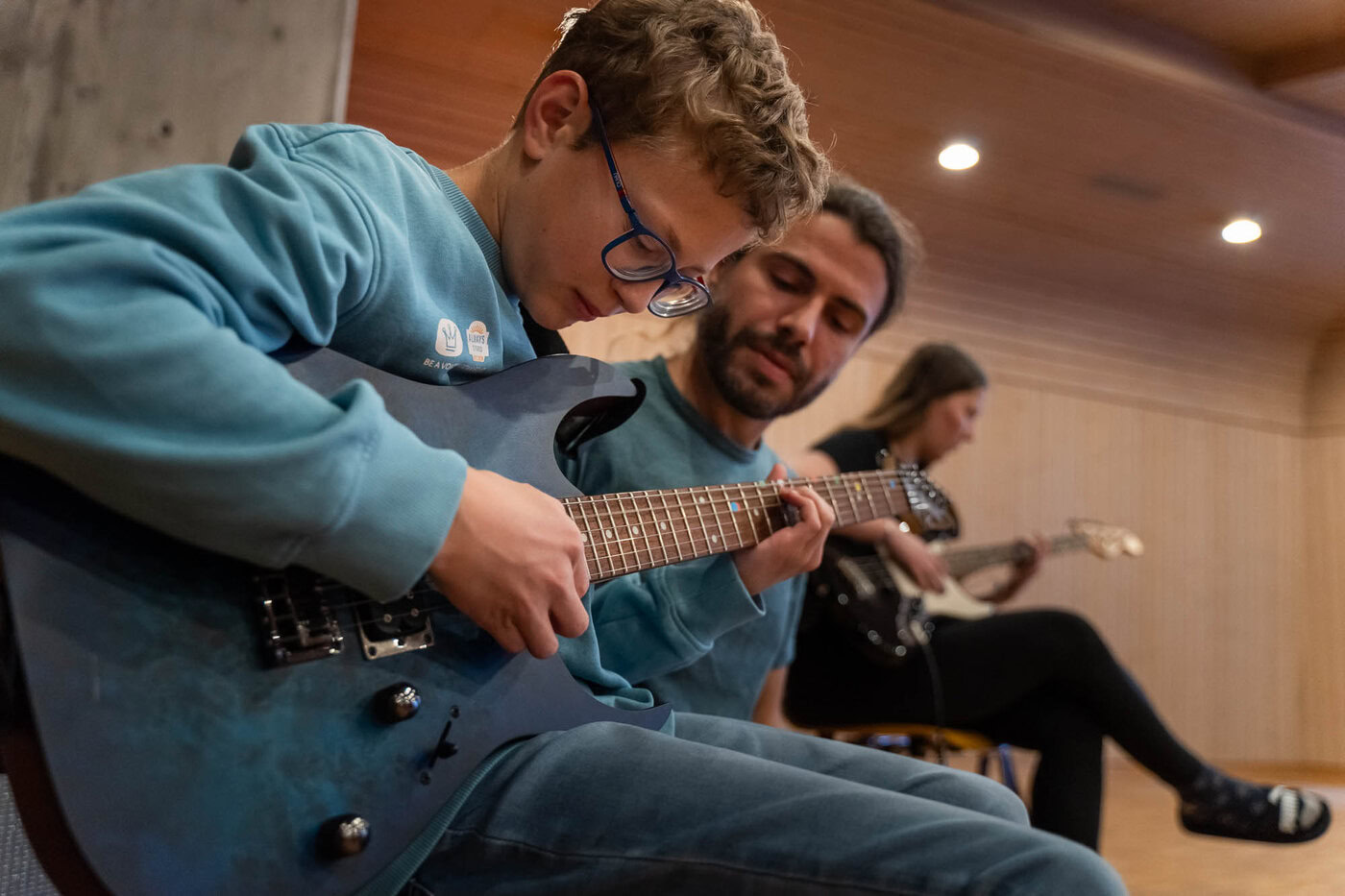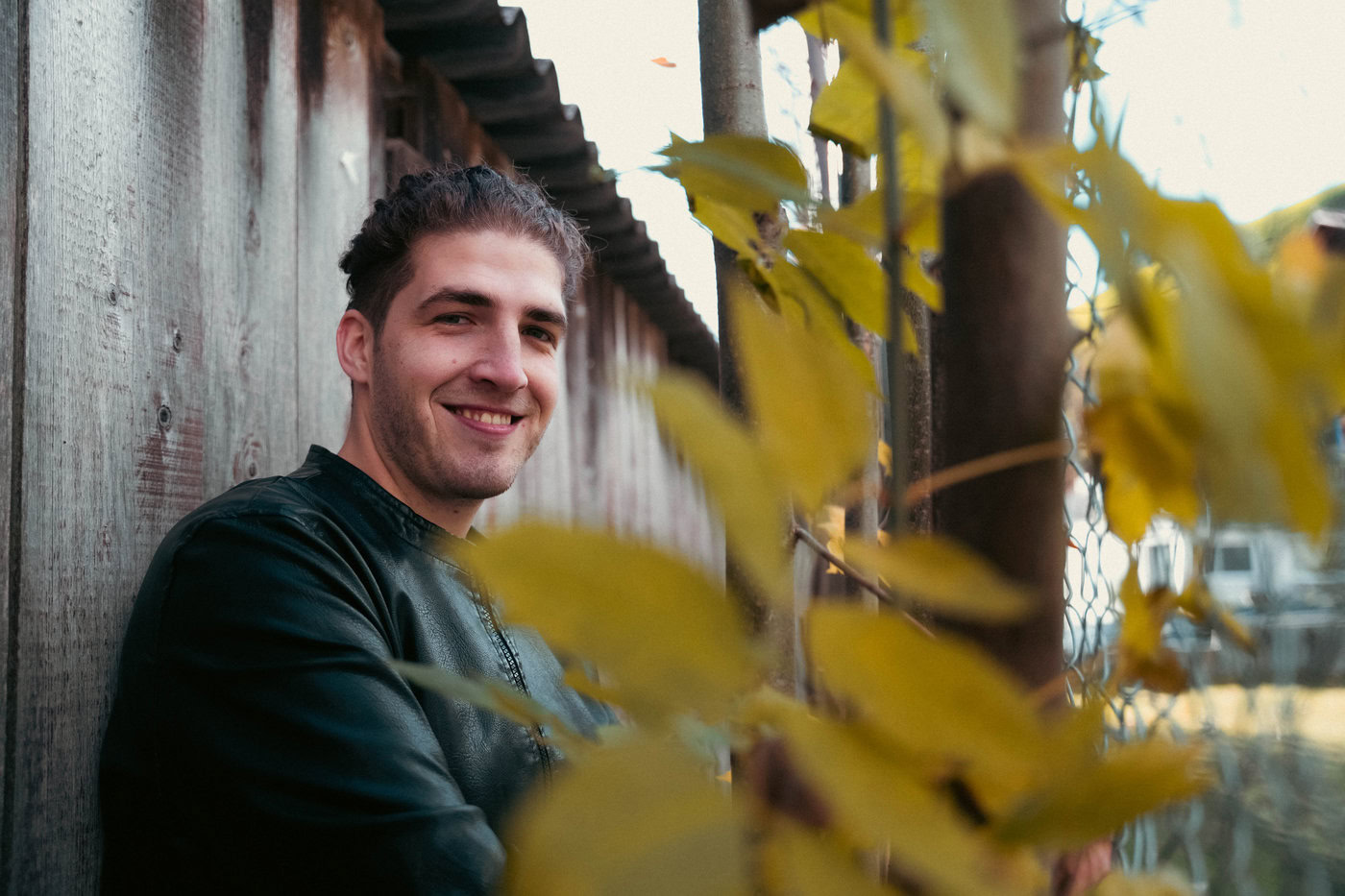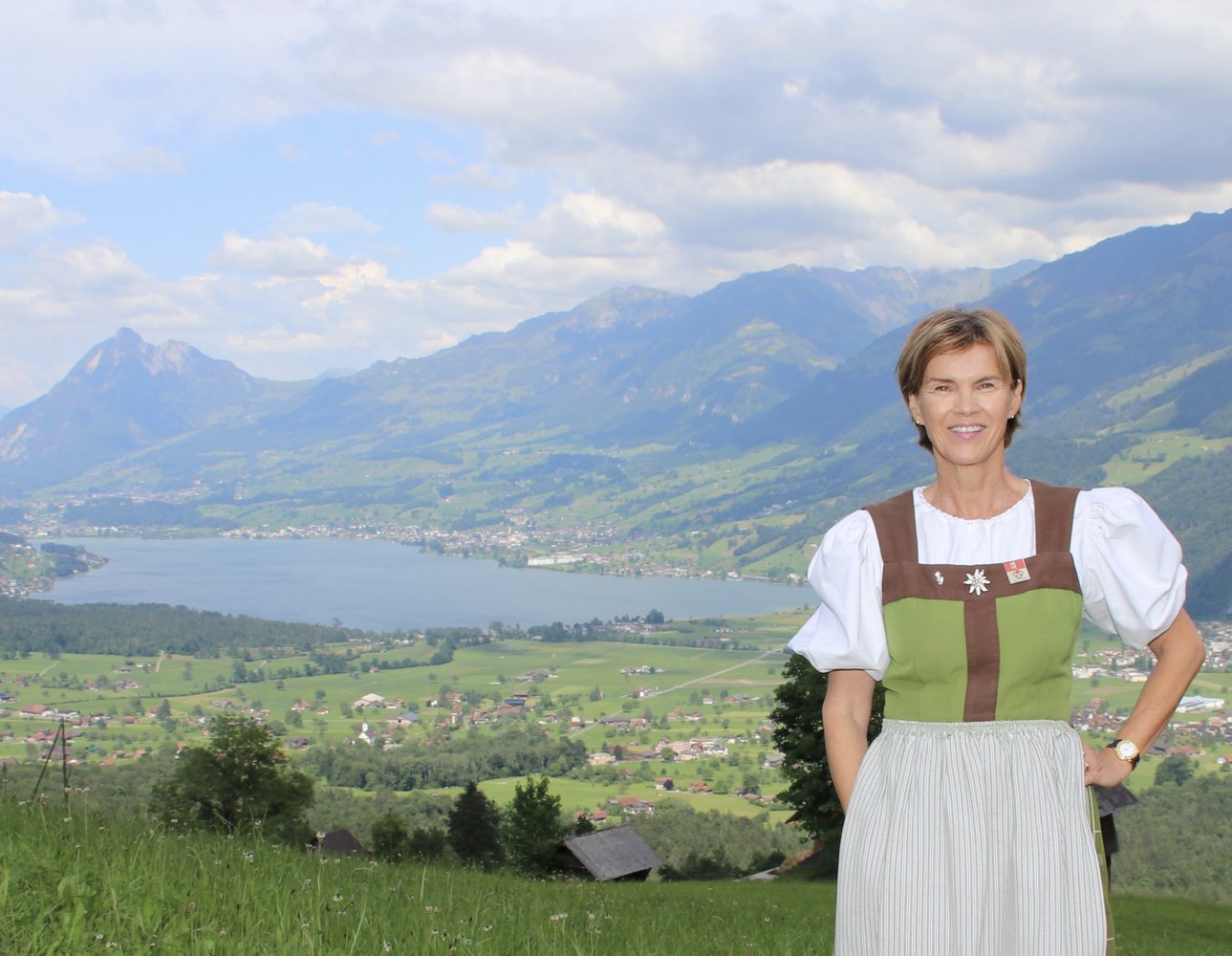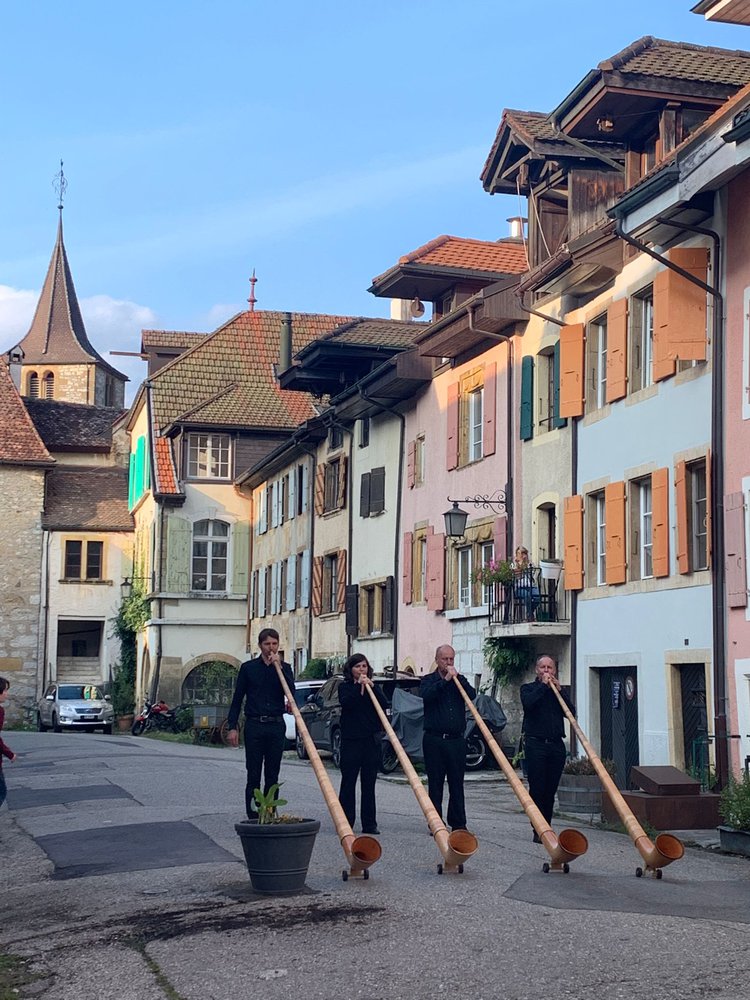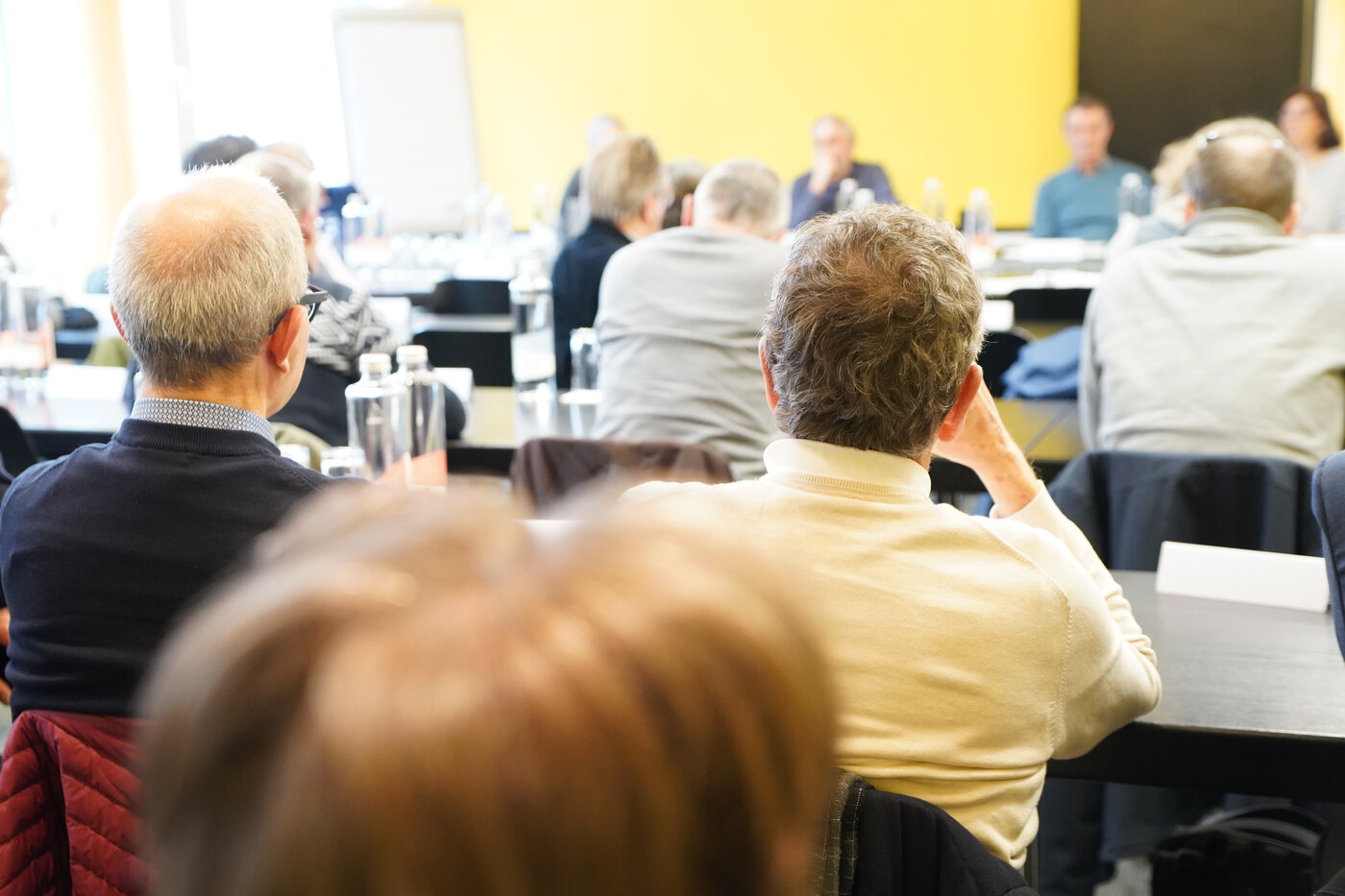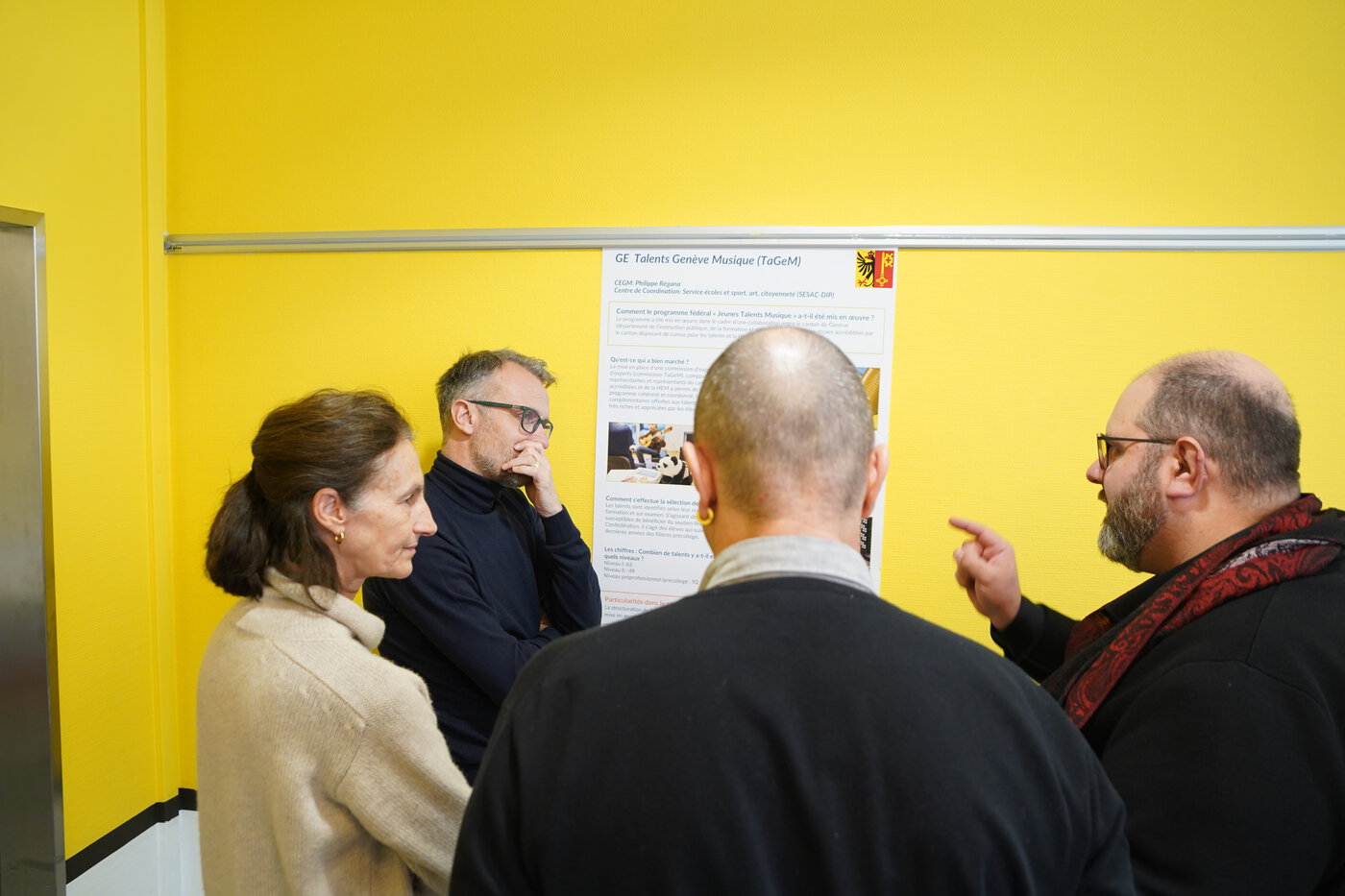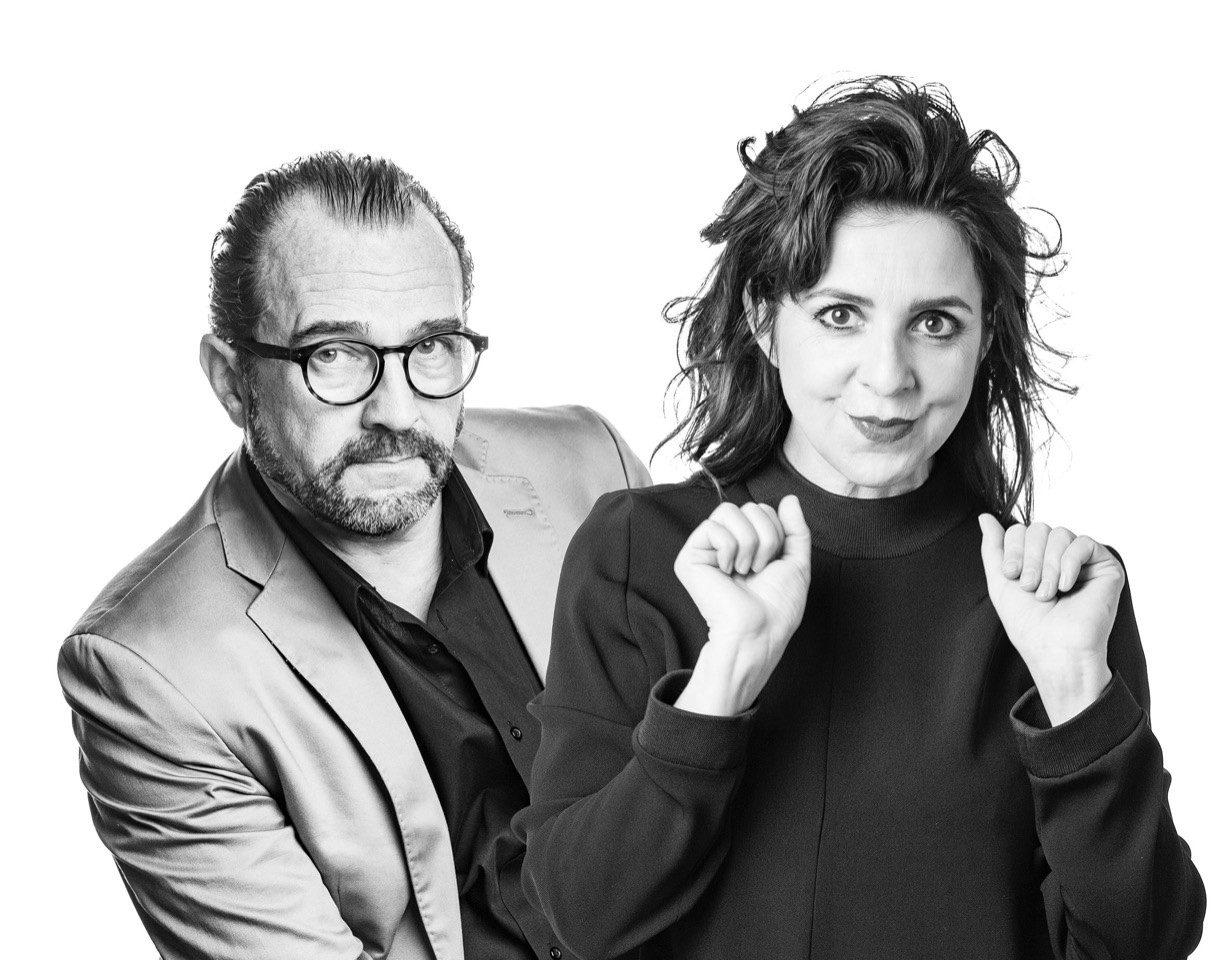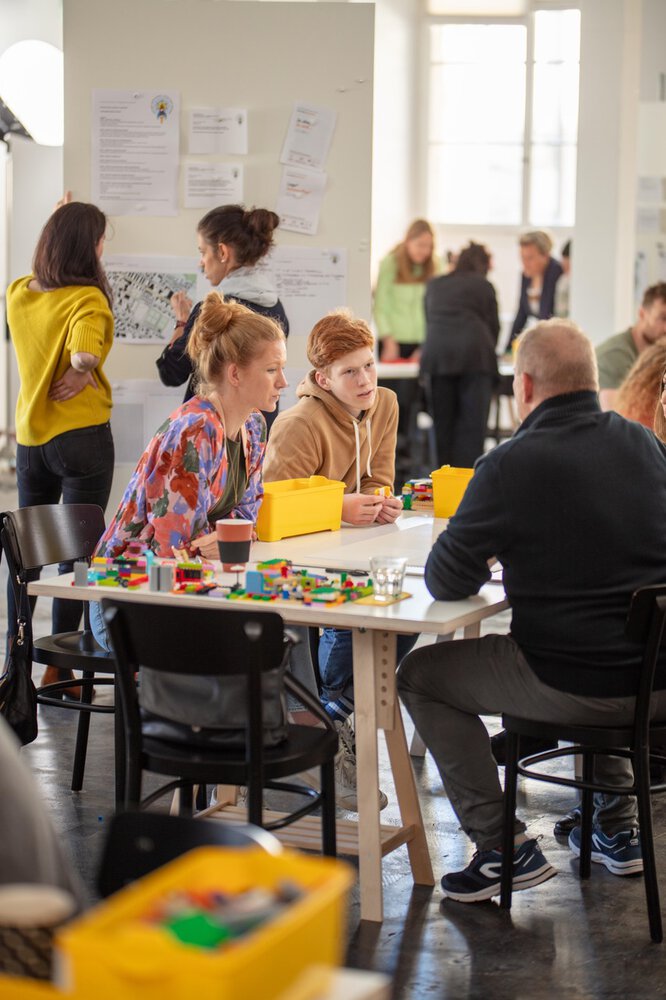Making music schools audible - on tour with the radio bus
Music schools from 17 Swiss music schools presented themselves as a live radio studio in September. The tour marked the 50th anniversary of the Association of Swiss Music Schools. We accompanied the radio bus and provide an insight.

"Hello everyone! Today and tomorrow we can present together with other children on the radio bus," is how Wanja and Moreno, two sixth-graders from Stans, greet their listeners. "We're really excited and, to be honest, also really excited. But it's coming along nicely!"
A little nervous and yet confident - this is how not only the two children from Nidwalden present themselves, but also the many other children and young people from all over Switzerland who took to the microphone in September as part of the VMS anniversary tour. They conducted interviews, played recordings from the music school, performed live on stage with their instruments, made the rounds of the audience and asked questions that were burning under their nails. They were supported by music teachers from their music school and also by the team from the Power-up Radiobus, a service provided by the Pestalozzi Children's Foundation. A year before the tour, those responsible at the participating music schools met for a kick-off event, and in spring 2025 the radio bus traveled through all 17 cantons for the first time to prepare the young radio producers for their task. The music schools were free to create their own content. This resulted in broadcasts of all kinds, with music ranging from Ländler and noise jazz to Taylor Swift.
"Actually, the VMS should also be celebrating its 51st anniversary," said Blaise Héritier, music school director from Moutier, "The project has released a lot of energy - throughout Switzerland, and also here in Moutier."
Cooperation with the elementary school
Several music schools teamed up with local elementary school for their radio day. In Malters in the canton of Lucerne, for example, a Year 6 class took over the content of the radio show, while pupils from the Malters Region Music School played a well-attended concert during the ten o'clock break, which was broadcast live on the radio. Both music school director Judith Reinert and class teacher Stefan Steiger greatly appreciated the collaboration. "It was great, my students were extremely committed to the radio day and also prepared for it in their free time," says Steiger, "The collaboration with the music school makes sense - we realized that we could work together again another time."

More practiced than usual
The Basel Music School deliberately moved away from its location in Grossbasel and organized a festival on the occasion of Radio Day in the large barracks courtyard, which is open on all sides and attracts people of all ages with playgrounds, bars and restaurants. "I am particularly pleased that we are allowed to be present here," says Kaspar von Grünigen, head of the jazz department, "As a music school, we want to be as open and accessible as possible." Another sign in this direction is the collaboration with HitProducer. The institution, which is based in the barracks, offers courses in music production in social institutions, among other things - on the radio day, it worked with a group of young people to create the content for the podcasts, which alternated with concerts by the music school. "I had to announce a few songs and conduct two interviews," reported one of the presenters, "It's really fun." And music student Nora, who performed with the large horn ensemble, said that she had practiced a little more than usual: "I thought it was very cool. I've never played at a festival before."


A project for young talents
Other music schools commissioned the students from the gifted and talented program to plan and implement the podcasts. In Köniz and Bremgarten (canton of Bern), for example, almost all of the young talents were involved. They asked their music teachers about their everyday lives, explained the waltz and asked the music school director to explain why John Coltrane was his favorite saxophonist. They then recorded music together in different formations. In both Köniz and Bremgarten, the radio day enabled the music students from the gifted and talented program to network. "That's an important point for us: bringing the talents together in peer groups," says Lukas Knecht, co-head of the Zollikofen Bremgarten music school.
Public relations: an important topic
"I think it's great that we can present ourselves as a music school in a different setting for once," says Judith Reinert, Head of the Malters Region Music School. This is also confirmed by Christian Schütz, Head of the Köniz Music School: "We are just one of many educational offers. We have to make sure that we are visible and reach families - and that people know that we not only offer instrument lessons, but also courses such as songwriting or producing."
And now to the sport
The podcasts were not just about music - one school class, for example, created a program about the natural disaster in Blatten in May 2025, another interviewed an employee at the zoo, and the latest sports results were also included. Nevertheless, the lion's share of airtime was devoted to music. In Nidwalden, over 200 pieces were produced at music schools in the canton during the preparations. The music school in the Obermarch region (SZ) celebrated its own 25th anniversary at the same time and organized concerts by various ensembles, including several youth orchestras. In La Chaux-de-Fonds (NE), the show had to be moved inside due to rain, but this did not dampen the mood. The musical performances from "Matilda" and "A Chorus Line", among others, were very popular with the audience. These are just a few of the highlights - we would like to recommend that you take a look at the Podcasts to listen in.
Meaningful
Philippe Krüttli took part in the anniversary tour in a dual role as President of the VMS and Director of the Ecole de musique du Jura Bernois. "Such events are very important for us music schools," he says. "They give meaning to our work. We normally work on our own, practise our instruments and want to improve - it's good to show what we've learned. And as president of the association, I am simply thrilled about this beautiful project. There is so much energy and so much commitment from the music schools. That's very motivating!"
Click here to go to the Project page of the VMS anniversary tourand here to the Powerup radio of the Pestalozzi Children's Foundation.
Our Picture gallery provides an insight into the various events surrounding the anniversary tour.







